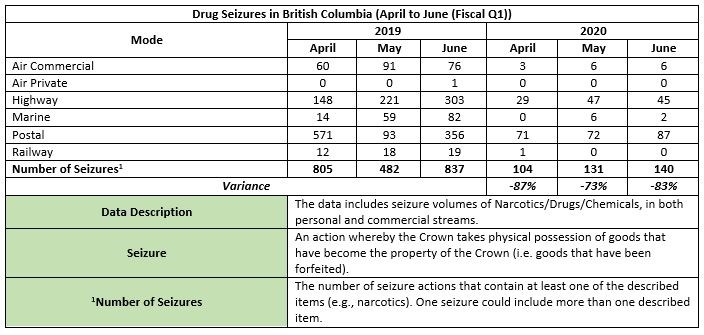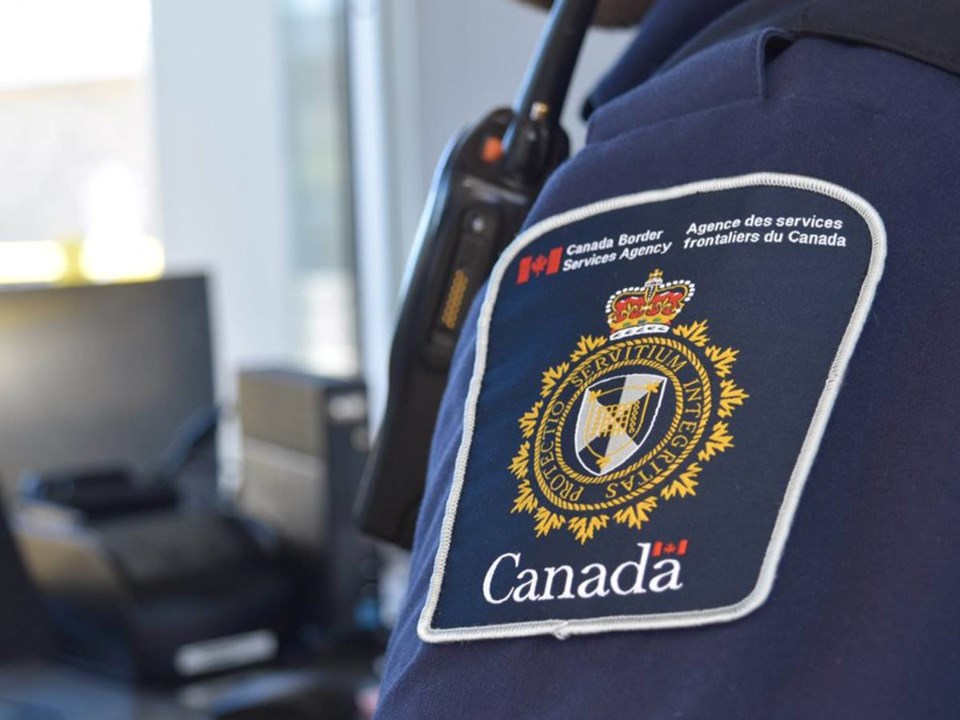Drug seizures at the B.C. border have plummeted during the COVID-19 pandemic.
According to the most recent data available, provided to the Richmond News by the Canada Border Services Agency (CBSA), drug seizures in June totalled just 140, down 83 per cent from the same month last year.
In June 2019, there were 837 drug seizures by CBSA at the border. April and May 2019 saw 805 and 482 seizures, respectively.
In comparison, this year there were just 104 seizures in April (a decrease of 87 per cent) and 131 in May (down 73 per cent).
However, it’s “too early to identify broad drug market changes” over a relatively short period of time, according to Cpl. Daniel Michaud, spokesperson with the RCMP’s federal serious and organized crime section.
“While we don’t have any statistical data, it would seem reasonable the closure of borders to non-essential travel, and the decline in world trade, has had an impact on the supply chains and drug trafficking patterns and routes,” Michaud told the News.

Once unreported drugs or controlled substances are discovered, the traveller is arrested and the drugs seized, according to a CBSA spokesperson, and referred to either RCMP or local police.
CBSA is in charge of official points of entry at the border, however, RCMP is responsible for the border between those official crossings – and has heightened surveillance at those areas of the border due to the pandemic, said Michaud.
Unless the seizures were of “personal consumption amounts,” the “vast majority” of drugs seized at the border are linked to organized crime, he added.
Canada’s borders are currently closed to non-essential travel due to the pandemic, while the government announced earlier this month that the closure of the Canada-US border has been extended to Sept. 21.
While that likely had an impact on the supply chain – including raising the price of imported drugs – Michaud said that, on the same token, organized crime groups are “resilient and adaptive.”
“(They) have shown their ability to change their modus operandi to suit changing environments,” he said.
“They may (be) seeking alternative means of transportation, trafficking and concealment to import drugs or to methods of obtaining pre-cursors to produce drugs domestically.”
The majority of drugs seized by CBSA between April and June 2020 were postal seizures, according to the agency’s data.
In June, there were 87 postal seizures, while April and May each had around 70.
Seizures at official air, highway, marine or rail border points all saw a significant drop during the pandemic.
RCMP have also seen evidence to suggest that consumers and sellers of illicit drugs may be switching to online methods of purchasing and delivering – such as through post and parcel service – said Michaud, rather than relying on traditional face-to-face meetings.
“We do have a federal investigative team dealing with darkweb-based illicit contraband,” he said.
The drug supply in B.C. is also “becoming more and more toxic,” Judy Darcy, minister of mental health and addictions, said in a statement earlier this week.
In July, 175 people died from an illicit drug overdose in B.C., the third consecutive month with more than 170 overdose-related deaths.



